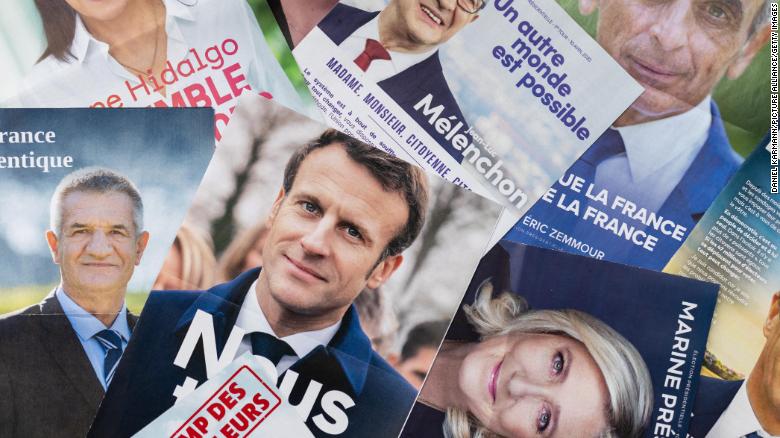Twelve candidates, including incumbent Emmanuel Macron, are running for the top job. If none of them receives more than 50% of the ballots, the top two candidates will face each other in a runoff on April 24.
But a second round is all but guaranteed — no French presidential candidate has ever won in the first round under the current system.
Macron is seeking to become the first French President to win re-election since Jacques Chirac in 2002.
The centrist Macron faces a litany of challengers from the political extremes, including Marine Le Pen, the long-time standard-bearer for the French far-right; TV pundit and author Eric Zemmour; and leftist firebrand Jean-Luc Melenchon.
Most analysts said the contest would be a referendum on the rise of the French right, but the war in Ukraine upended those expectations.
The President proposed a higher tax on diesel early in his tenure that set off the yellow vest movement, one of France’s most prolonged protests in decades.
His record on the Covid-19 pandemic, the other defining crisis of his presidency, isn’t clear-cut. Macron’s signature policy during the Covid era — requiring people to show proof of vaccination to go about their lives as normal — helped increase vaccination rates but fired up a vocal minority opposed to his presidency.
Macron has so far done very little campaigning and refused to debate his opponents. Experts believe his strategy was to avoid the political mudslinging as long as possible to brandish his image as the most presidential of all the candidates.
Le Pen, for her part, has run a more mainstream campaign this year compared to her last attempt to win the presidency. While controlling immigration remains her campaign priority, she softened her anti-Islam tone and abandoned her calls for France to leave the European Union — especially in the wake of Brexit — to win over voters from outside her base.
Political analysts say Le Pen’s focus on the rising cost of living could pay dividends, as the spiking prices of everyday goods and energy are among the main concerns of the electorate.
Many experts also expected the war to hurt the Le Pen and Zemmour campaigns, as both had previously spoken fondly of Russian President Vladimir Putin. Le Pen scrapped a campaign leaflet with a photo of her visiting the Russian leader, while Zemmour backtracked after he promised Putin would never invade Ukraine.
Nathalie Loiseau, a member of the European Parliament and Macron’s first European affairs minister, told CNN she believes the French President is motivated by “a sense of duty.”
“He doesn’t do it for electoral reasons. He does it because he thinks he has to,” she said.
But Macron’s decision to forgo campaigning in lieu of seeking a diplomatic solution to the crisis in Ukraine, whether motivated by politics or principles, could prove to be a liability.
“This is not rewarding. He will not have a big win. He knows it. But he has to do it,” said Loiseau.



























